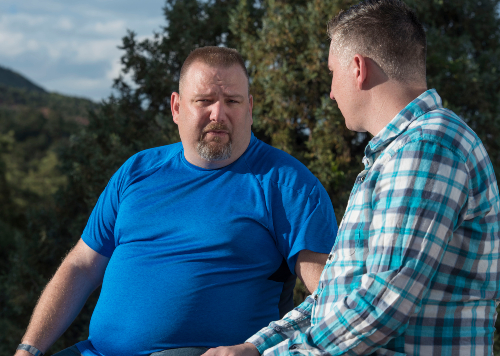10 Tips to Help Warriors Cope with PTSD

JACKSONVILLE, Fla. (June 22, 2020) — In 2018, the U.S. Department of Veteran Affairs (VA) treated more than 1.7 million veterans for mental health issues, including combat stress, depression, and post-traumatic stress disorder (PTSD). The agency’s National Center for PTSD reports that about 11% to 20% of veterans who served in Operations Iraqi or Enduring Freedom experience PTSD in a given year.
Still, some veterans are left undiagnosed and untreated. Wounded Warrior Project® (WWP) believes it is imperative to raise PTSD awareness and highlight mental health services and resources available to wounded warriors.
“Post-traumatic stress is not a civilian or military issue, but rather a human issue and the brain’s natural response to trauma,” said Lt. Col. (Ret.) Michael Richardson, WWP vice president of independence services and mental health. “Warriors need to know they are not alone and that treatment works. These invisible injuries are not a life sentence. They can be treated, and contrary to what stigma dictates, it shows immense strength to seek care for the invisible wounds — just as one would for a visible injury.”
Here are 10 tips for helping warriors coping with PTSD:
1. Let veterans determine what they are comfortable talking about, and don’t push.
2. Bring veterans to a quiet place or suggest some deep breathing exercises when the stress seems overwhelming.
3. Encourage creative outlets like writing to help veterans clarify what is bothering them and help them think of solutions.
4. Suggest healthy habits, rather than unhealthy habits as ways to solve problems. Alcohol and drug use make things worse in the long run.
5. Stay aware of your surroundings and check in on veterans. Crowds, trash on the side of the road, fireworks, and certain smells can be difficult for veterans coping with PTSD.
6. Be a good listener and stay away from saying things like “that’s just like when I…” or “I know how you felt.” Everyone’s feelings are unique.
7. Learn about mental health support resources that ease symptoms of combat stress.
8. Remind warriors they are not alone. Talking to other warriors with similar injuries can help to cope.
9. Allow and encourage warriors and their family members to express their feelings and thoughts to those who care about them.
10. Let veterans know that acknowledging they may have PTSD shows they’re strong – not weak.
Click here to learn more about PTSD and mental health services and resources available to wounded warriors.
Contact: Vesta M. Anderson — Public Relations, vanderson@woundedwarriorproject.org, 904.570.0771
About Wounded Warrior Project
Since 2003, Wounded Warrior Project® (WWP) has been meeting the growing needs of warriors, their families, and caregivers — helping them achieve their highest ambition. Learn more.